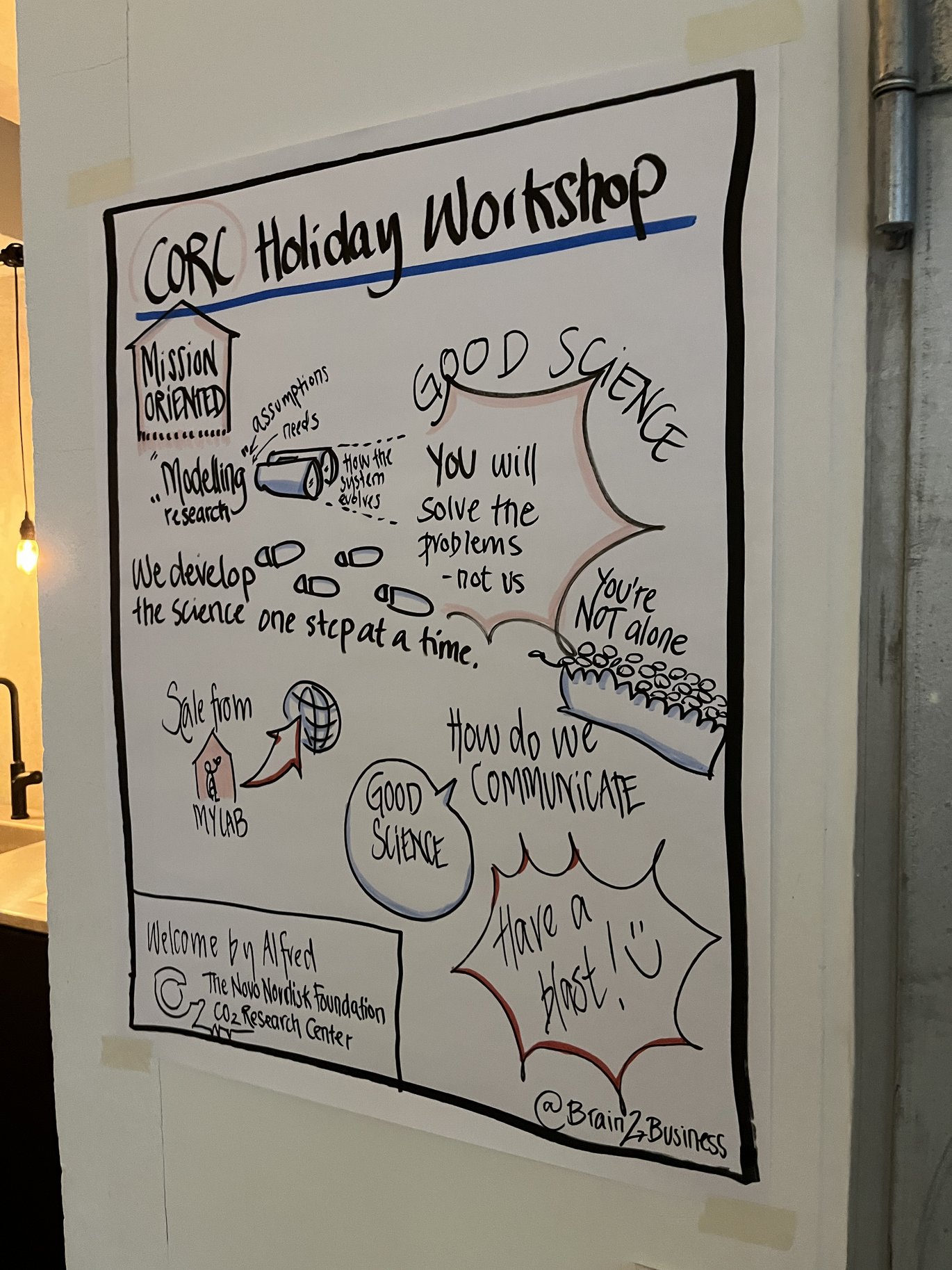Transforming young researchers into Communication Wizards in 48 hours
CORC's first workshop for young scientists includes insights on systems thinking, impactful graphic visualization, and improv-based science communication, leaving the researchers inspired for future interdisciplinary collaborations.

On December 7th and 8th CORC held the first training course for PhDs and Postdoc students. The overarching theme of the workshop was communication and how to discuss research in ways that facilitate interdisciplinarity, enhance understanding, and better allow researchers from different scientific fields to support one another. No less than 40 PhDs and Postdocs from 10 of CORC’s research groups attended the event.
Executive director of CORC, Alfred Spormann opened the workshop with an important reminder that early-stage researchers are at the heart of science: “It’s crucial to invest in the development of young researchers by providing tools and skills that will enhance their research and help them build successful careers. Involvement from the participants is also important, and the workshop themes are therefore based on feedback from our last gathering at the Annual Meeting in April”, he explains.
A system mindset to clarify complexity
The first theme of the day was Systems Thinking theory which was presented by Silvia Zieger, a freelance data scientist and system modeler at CORC. Together, the participants mapped out the complex system of direct air capture technologies and experimented with ways to simplify complexity, such as focusing on a qualitative understanding and setting clear boundaries when defining the system.
“The systems thinking principles are very central for developing new, innovative technologies. I found that the researchers were quite excited about the potential of system modeling, and it is definitely a topic we plan to continue teaching in future workshops,” Silvia Zieger says.
Graphic visualization: a strong communication tool
The second theme centered around graphic visualization, featuring a crash course delivered by Anna Laybourn from Brain2Business. After loosening up with some sketches, the researchers drew out a series of graphic templates, to present their research in a thirty-second pitch and zoom in on the potential impact of their work. The result were graphic visualizations as responses to the question: “What challenges would you like to network about?”, which served as a jumping-off point for further discussion.
With the support of Anna Laybourn’s graphics, and primed with Silvia Zieger’s system-thinking mindset, the researchers gained a more detailed overview of CORC’s projects and identified potential overlaps between the groups.
Improv techniques to enhance presentation skills
The last theme of the workshop was improv science communication facilitated by Robin Bonné, a freelancer in science communication and a Postdoctoral researcher at Aarhus University. Using techniques from improv theater, the scientists practiced using body language, storytelling, and enthusiasm to enhance the presentation of their science. Through a role-playing exercise, they also tested tailoring their message to various audiences, ranging from Dronning Margrethe, the queen of Denmark, to the CEO of a major oil company.
Based on the feedback we received from the workshop participants, and according to CORC's Director of Outreach, Mads Lundgren Bendixen, the researchers experienced that each presenter helped them better communicate their science to others outside their field and inspired more in-depth conversations:
“Besides introducing new perspectives and skill sets, the primary goal of the workshop was to provide space for the researchers to get to know one another. This set-up seemed to be working extremely well - throughout the workshop, there was tangible excitement in the room, and during meals and coffee breaks, the various labs integrated and connected. Encouraged by the success of this workshop, we are planning to expand on each of the three themes in future PhD and Postdoc events,” Mads Lundgren Bendixen concludes.
The CORC PhD and Postdoc workshop was organized by:
Nicole Matis, Scientific Coordinator
Rebeka Baskaran, Scientific Coordinator
Silvia Zieger, Life Cycle Analyst
Mads Lundgren Bendixen, Director of Outreach
